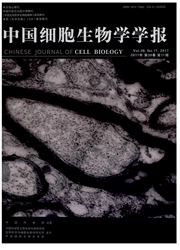

 中文摘要:
中文摘要:
程序性死亡受体-1(programmed death-1, PD-1)是B7-CD28(B7 family-cluster of differentiation 28)家族最新发现的成员, 其在肿瘤免疫逃逸和免疫耐受中发挥着重要的作用。PD-1作为抑制性受体, 在T细胞的信号转导中发挥着关键性作用, 能够通过阻断与PD-1/程序性死亡受体-1配体-1(programmed death-1 ligand-1, PD-L1)信号通路, 能够促进T淋巴细胞的增殖和分化, 从而激活抗肿瘤免疫反应。而作为PD-1配体的PD-L2, 除了在肿瘤免疫中发挥作用外, 还在哮喘、过敏性反应等方面起着重要作用。该文就PD-1、PD-Ls与PD-1/PD-Ls信号通路以及PD-1抗体在肿瘤免疫治疗中的应用作一综述。
 英文摘要:
英文摘要:
PD-1 (programmed death-l) belongs to B7-CD28 (B7 family-cluster of differentiation 28) dependent Ig-like family. As a suppressive receptor, PD-1 plays pivotal roles in signal transduction ofT cells. The blockage of the signaling between PD-1 and its ligand PD-Ll(programmed death-1 ligand-1) will promote the T cells proliferation and differentiation and conseguently activate immune responses against tumor cells. Binding to its another ligand PD- L2, PD-1 not only plays a key role in tumor immunity, but also plays important roles in asthma, allergic reaction and so on. This review focused on the signaling pathways of PD-1 and its ligands, as well as antibody inhibitors and the clinical application in cancer immunotherapy.
 同期刊论文项目
同期刊论文项目
 同项目期刊论文
同项目期刊论文
 期刊信息
期刊信息
